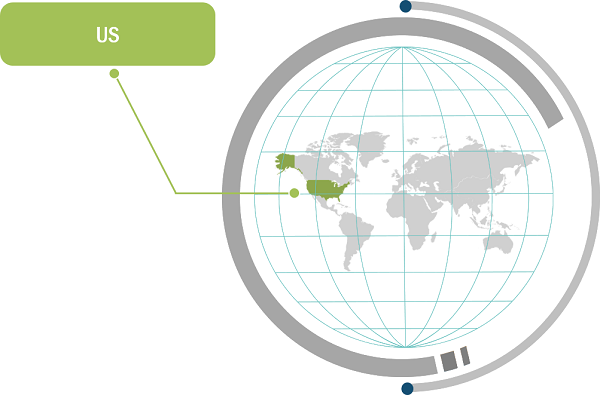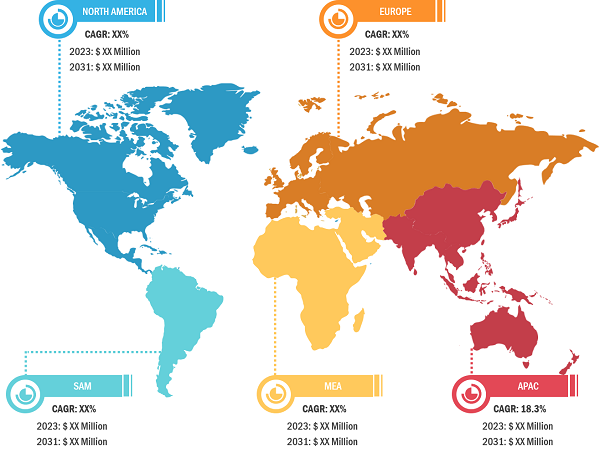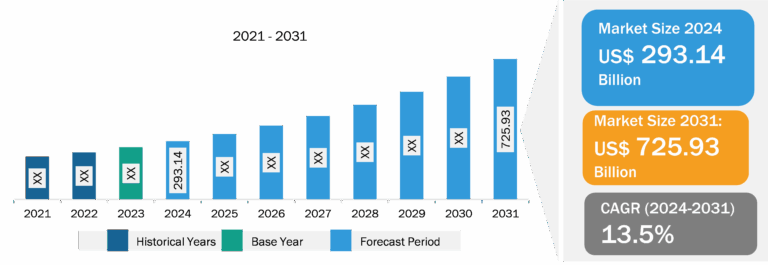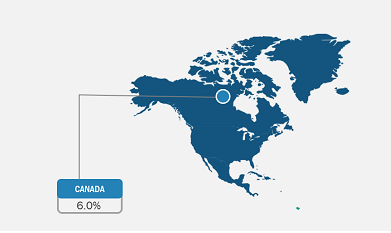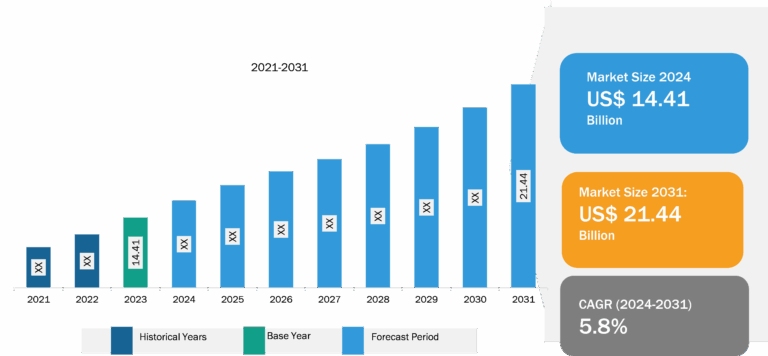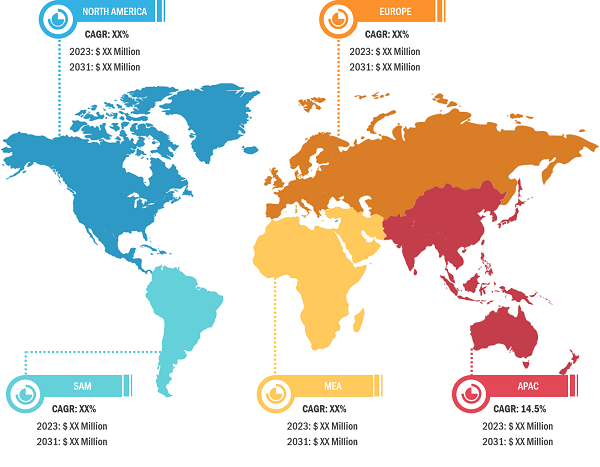
Privileged Access Management Solutions Market
Stringent Government Regulations to Fuel Privileged Access Management Solutions Market Growth During Forecast Period
Various industry and government regulations require businesses to adhere to strict security controls. In such a scenario, a privileged access management solution is a crucial aspect of an organization’s cybersecurity strategy. In industries such as healthcare, finance, and government that handle sensitive data, organizations of all sizes must comply with complex regulations such as GDPR, HIPAA, PCI-DSS, and SOX to protect the sensitive data of consumers and businesses. Failure to comply with these regulations can lead to heavy fines and damage to the organization’s reputation. For instance, the General Data Protection Regulation (GDPR), which was established in 2018, imposes fines ranging up to US$ 21.68 million (EUR 20 million) or 4% of the company’s global annual revenue, whichever is higher. Similarly, the Health Insurance Portability and Accountability Act (HIPAA) violations fines can range up to US$ 1.5 million per violation. The Securities and Exchange Commission (SEC) imposes fines from tens of thousands to millions of dollars. The Occupational Safety and Health Administration (OSHA) violations fines can range up to US$ 134,937 per violation, whereas the Foreign Corrupt Practices Act (FCPA) violations can require a fine of a total of US$ 25 million or more. The Environmental Protection Agency (EPA) can fine in the range of up to US$ 50,000 per day per violation. Companies worldwide have faced huge fines due to the violation of these regulations. For instance, according to a survey of 500 organizations worldwide by Kaspersky, the average loss of a company from a violation is US$ 551,000, of which the average loss of small and medium-sized companies from a violation is US$ 38,000. Organizations are required to implement privileged access management solutions to comply with these stringent government regulations. Privileged access management is a crucial tool for businesses looking to comply with industry regulations, including PCI DSS, HIPAA, SOX, and GDPR. Thus, stringent government regulations fuel the privileged access management solutions market growth.

Privileged Access Management Solutions Market: Industry Overview
The privileged access management solutions market is segmented based on offering, deployment, enterprise size, end-use industry, and geography. Based on offering, the market is segmented into solutions and services. By deployment, the market is bifurcated into cloud and on premise. In terms of enterprise size, the market is bifurcated into large enterprises and SMEs. Based on industry vertical, the market is segmented into BFSI, IT & telecom, healthcare, energy & utility, retail & ecommerce, manufacturing, government & defense, and others. By geography, the privileged access management solutions market is segmented into North America, Asia Pacific, Europe, the Middle East & Africa, and South & Central America.
In terms of revenue, North America dominated the privileged access management solutions market share, followed by Europe and APAC. The privileged access management solutions market in North America is subsegmented into the US, Canada, and Mexico. The US is anticipated to hold the largest privileged access management solutions market share by 2031. Growing digitization, increasing number of cybercrimes, and rising technological spending by government agencies are expected to fuel the privileged access management solutions market growth in the US. For instance, according to USAFacts, the US reported 800,944 cybercrimes in 2022, of which 869 were ransomware attacks targeting critical infrastructure, disrupting operations in sectors such as healthcare and commercial services. Cyberattacks and online fraud are becoming major problems for individuals, businesses, and the government in the US. Thus, businesses are increasingly implementing robust security measures such as PAM.
IBM Corporation, Microsoft, Oracle, Delinea Inc., and One Identity LLC are the key market players operating in the US. These market players are increasingly focusing on developing innovative solutions.
Privileged Access Management Solutions Market: Competitive Landscape and Key Developments
Broadcom Inc., CyberArk Software Ltd., International Business Machines Corp, Okta Inc, One Identity LLC., Delinea Inc., BeyondTrust Corporation, Microsoft Corp, Fortinet Inc., and Persistent Systems Ltd are among the leading players profiled in the privileged access management solutions market report. Several other essential market players were analyzed for a holistic view of the market and its ecosystem. The privileged access management solutions market report provides detailed market insights, which help the key players strategize their market growth. As per the company press releases, below are a few recent key developments:
- CyberArk, the identity security company, announced that FM Logistic, a global supply chain management service, selected the CyberArk Identity Security Platform to secure tens of thousands of identities around the world and provide a secure foundation for its digital transformation and information security. To streamline processes and improve productivity, FM Logistics began a major digital transformation initiative, including a cloud migration project. Its existing identity management solution, however, was labor-intensive when managing privileged identities and not compatible with its cloud migration efforts. The company needed a solution to reduce complexity, simplify and automate its identity lifecycle management, provide privileged access management, and integrate with their cloud migration.
(Source: CyberArk, Press Release, May 2024)
- IBM unveiled its new security suite designed to unify and accelerate the security analyst experience across the full incident lifecycle. The IBM Security QRadar Suite represents a major evolution and expansion of the QRadar brand, spanning all core threat detection, investigation, and response technologies, with significant investment in innovations across the portfolio.
(Source: IBM, Press Release, April 2023)

